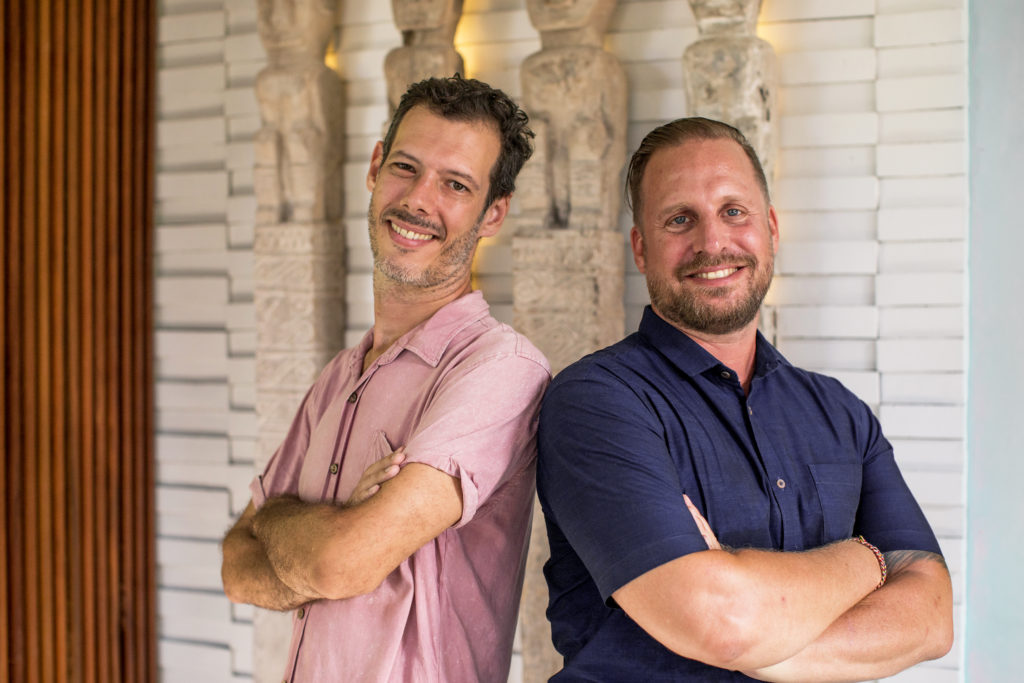With COVID-19 leading once vibrant cities like Hong Kong and Singapore into long lockdowns, Bali – with its coconut palm trees and cool sea breeze – has never looked better.
In line with most property markets around the world, real estate sales in Bali have been on the rise of late. With working remotely now the new normal, expats from all over have been relocating to the island of gods. The affordability of living in Bali, coupled with its great quality of life (good international schools, world class cuisine, surfing, yoga etc); make it the perfect alternative to city living.
We speak to Bali Real Estate Consultant’s founders Marc and Amadeus on where the market is heading.

Mark and Amadeus have been in real estate for 10 years, but first met years ago while they were showing the same villa to their individual clients. With plenty in common, from their German roots and strong work ethic, they quickly realized that they could do so much more together – and hence founded Bali Real Estate Consultants, where they promise to make “your Bali property dreams come true.”
Freehold vs. Leasehold. Which is better?
There are two options to purchase in Bali. The first is freehold, which is naturally the more expensive option, and the second is leasehold, which is more affordable.
Freehold is recommended for investments above $1 million, whether for business or personal long-term use. Though more expensive, owners can focus on capital gains from land value increasing over time. However, freehold can only be obtained by Indonesian individuals, or if you are a foreigner, you can set up a foreign-owned company and use a Hak Guna Bangunan (HGB) land title to purchase property.
Meanwhile, leasehold is recommended for investments below $1 million, with more focus on business, ROI per year, and prime location. These leases are generally between 1-25 years, with an option to extend.
Where should you be buying now?
In recent years Canggu has become the new hotspot in Bali. Top restaurants and beach clubs are opening up in the once laidback vicinity. Key areas to look out for are the outskirts of Canggu such as Pererenan, Seseh, and Cemagi.
However, more and more clients are looking outside of the box. Places like Kaba Kaba, Cepaka and Buwit are now gaining more attention, as they also offer beautiful nature. They give off an Ubud feel and are only 10-20 minutes away from the beach and restaurants.
What kind of returns can Bali provide?
Naturally it really depends on where and what you buy. But looking at land in Canggu, if you bought 10 years ago, you would look at approximately 1000% gains right now.
Do you see a change in the type of client looking to buy in Bali?
Yes, we see more people buying with a different purpose. Rather than simply buying pure investment properties, our clients are looking more for homes. This includes second homes, holiday homes and even retirement homes. Others even look for a combination of rental business and a second home/holiday home to personally enjoy several months per year.
How has COVID-19 affected the real estate market?
First, there’s the uncertainty of the economic future, the worldwide rising level of inflation, and taxation. Locally, there’s an increasing buying power from the steadily growing middle class in Indonesia. Secondly, there are the lockdowns in the cities. The thought of living in a small apartment in the city vs. a private villa with large gardens and a swimming pool has affected the market, and the trend of working from home has clearly shown us a shift in demand and value. Lastly, the lifestyle, choice of restaurants, beach clubs, cafés, boutiques, and the cost of living in Bali is second to none.
Any useful information about the legal structure in Bali?
For advice on this, it is best to consult a reputable lawyer or a legal advisor. However, we can say it is certainly illegal and risky to use nominee structures and try to own a property through such a vehicle. Depending on the purpose of the property investment, we will either recommend setting up a PT PMA company or to look at leasehold properties which can produce a higher level of return on investment and can be held under personal name or foreign entity name.





